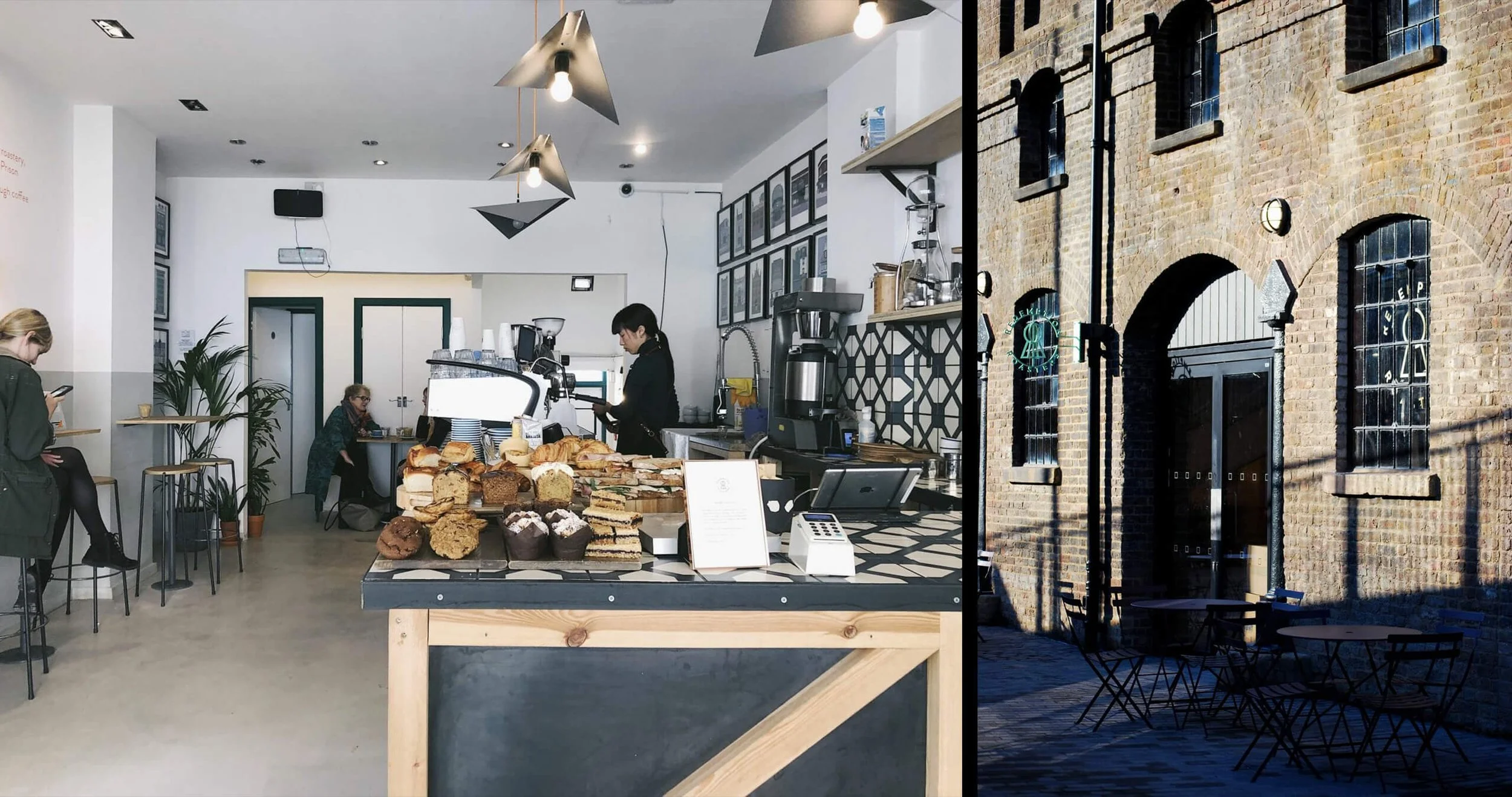Meet the Founder of Redemption Roasters, Max Dubiel: “Reducing re-offending through specialty coffee”
1. Describe your startup in two sentences?
Reducing re-offending through specialty coffee: we roast our coffee at HMP The Mount and teach offenders coffee skills with the aim of reducing re-offending. We operate 10 thriving coffee shops in central London where we employ our programme participants, making up 20% of our workforce.
2. What gave you the inspiration?
Realising that the UK criminal justice system was broken. More than 50% of ex-offenders go on to re-offend, costing the taxpayer an estimated £18.5 billion yearly. This does not account for the countless lives and communities affected by crime. Ex-offenders who leave prison with skills and a job are 50% less likely to re-offend. If there is one area in hospitality that requires exceptional skills, it is specialty coffee.
3. How did you meet
We met at St Andrews University. We were on a committee together, organising a large student-run charity event, and we subsequently became friends. Ted impressed me because he was exceptional at getting things done, and he still is.
4.What has been your greatest success to date? And your greatest challenge?
Opening an industrial-scale coffee roastery behind bars was one of our greatest challenges to date. From hiring the right talent to navigating important prison bureaucracy, such as security vetting and arranging contractors, it was no easy task ("no, you cannot just bring your power tools with you"). Running logistics through the gates with extremely limited access to technology posed significant hurdles. Some ask whether we have cost savings by operating out of a prison, but I like to answer that it would be infinitely cheaper and easier to rent a warehouse in Tottenham, but then we would not be true to our name!
5. What kind of impact is your business having and how do you measure it?
Our impact starts with meaningful activity for those behind bars. Too often, people become institutionalised and criminalised while in custody. Giving someone skills and treating them with respect while behind bars drastically increases their sense of self-worth, reducing the likelihood of incidents of self-harm and violence. Secondly, teaching someone employable skills and offering employment opportunities on release reduces their likelihood of reoffending. We have worked with over 1,700 individuals to date, measuring our participants' re-offending rates against the national average and publishing the figures in our yearly social impact report.
6. When you were little, what did you want to be when you grew up?
Batman
7. If you weren’t doing this, what would be your plan B?
Waste management is an area that fascinates me. Not in a mafia kind of way, but finding technological and biological solutions to the inevitable problem of consumption in a growing population.
8. What would you save in a fire?
My girlfriend Katie, though she’s a fiery redhead, so probably caused it.
9. Who is your role model/ greatest influence? and why?
Bill Gates is one of them. A man who applies his intellect, curiosity, and success to solving some of the world's most pressing problems.
10. What is your happy track?
Stavroz, Should've Brought an Umbrella. Also relevant given the British 'summer.'
11. What’s your motto?
Get on with it, do it well, make a difference, and enjoy the ride.
11. What are you most looking forward to in the next year?
Opening some long-awaited Redemption Roasters stores in Victoria Station, Hampstead, and Richmond.


